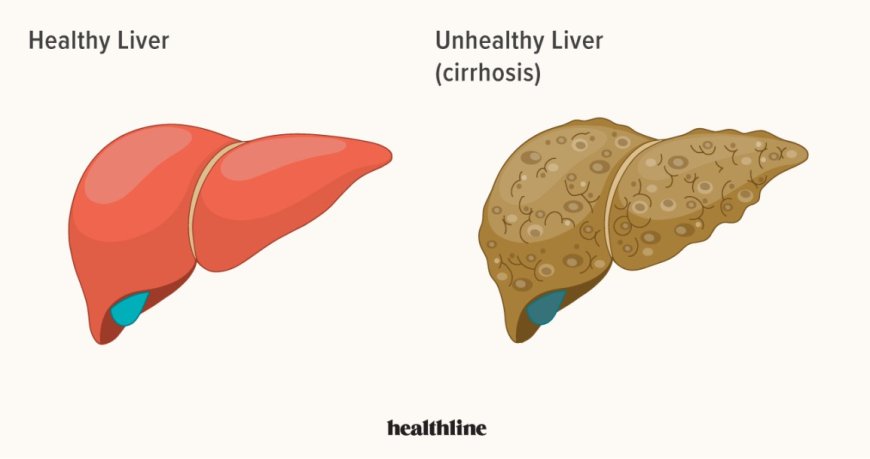Liver Friendly Choices: Keeping Your Body’s Powerhouse Thriving
Healthy Liver

The liver, silently working away in the background, is one of the most crucial organs in your body. Often referred to as the body’s powerhouse, it performs over 500 essential functions, including:
- Detoxification: Filtering out toxins and waste products from your blood.
- Metabolism: Processing nutrients from food and converting them into energy.
- Protein synthesis: Creating vital proteins needed for various bodily functions.
- Blood sugar regulation: Maintaining healthy blood sugar levels.
- Bile production: Aiding digestion by breaking down fats.
Given its extensive workload, keeping your liver healthy is paramount for overall well-being. Fortunately, several dietary and lifestyle choices can significantly enhance your liver’s function and resilience.
Dietary Do’s and Don’ts for a Liver-Loving Lifestyle
Embrace a Balanced Diet:
- Plentiful Plants: Fill your plate with a rainbow of fruits and vegetables. These are rich in antioxidants, vitamins, and fiber, all crucial for optimal liver function.
- Whole Grains: Opt for whole grains like brown rice, quinoa, and whole-wheat bread over refined options. They provide sustained energy and dietary fiber, aiding digestion and reducing strain on your liver.
- Lean Protein Sources: Choose lean protein options like fish, poultry, legumes, and nuts. These are essential for building and repairing tissues, which your liver plays a vital role in.
- Healthy Fats: Include healthy fats from sources like olive oil, avocado, and fatty fish. These fats help the body absorb essential vitamins and aid liver function.
Foods to Limit:
- Sugar and Refined Carbohydrates: Excessive sugar and refined carbohydrates can lead to fat accumulation in the liver. Limit sugary drinks, white bread, pastries, and processed foods.
- Saturated and Trans Fats: Saturated and trans fats found in fried foods, fatty meats, and processed snacks can overburden your liver and contribute to fatty liver disease.
- Salt: High sodium intake can lead to fluid retention, which can negatively affect your liver health. Choose low-sodium options and limit processed foods.
Drink Wisely:
- Moderate Alcohol Consumption: Excessive alcohol consumption is a leading cause of liver damage. The National Institute on Alcohol Abuse and Alcoholism (NIAAA) recommends limiting alcohol intake to one drink per day for women and two drinks per day for men.
- Water is Key: Staying adequately hydrated is crucial for all bodily functions, including liver detoxification. Aim to drink plenty of water throughout the day.
Lifestyle Changes for a Healthy Liver
Maintain a Healthy Weight: Obesity is a major risk factor for nonalcoholic fatty liver disease (NAFLD). Losing weight and maintaining a healthy body mass index (BMI) can significantly improve your liver health.
Exercise Regularly: Physical activity helps reduce fat accumulation in the liver and improves insulin sensitivity. Aim for at least 30 minutes of moderate-intensity exercise most days of the week.
Get Vaccinated: Vaccinations for hepatitis A and B can protect you from these viral infections that can damage your liver.
Practice Safe Sex: Hepatitis B and C can be transmitted through unprotected sexual contact. Practice safe sex to prevent these infections.
Manage Stress: Chronic stress can contribute to inflammation throughout the body, potentially impacting liver function. Find healthy ways to manage stress, such as yoga, meditation, or spending time in nature.
Get Enough Sleep: Aim for 7-8 hours of quality sleep each night. Sleep allows your body to repair and regenerate, including your liver.
Be Mindful of Medications and Supplements: Consult your doctor before taking any new medications or supplements, as some can tax your liver. Let your doctor know about all medications you’re taking to avoid any potential interactions.
Avoid Toxins and Pollutants: Inhaling or ingesting toxins can damage the liver. Limit exposure to pesticides, herbicides, and other environmental pollutants. If you work with chemicals, wear appropriate protective gear.
Additional Tips:
- Read Food Labels: Pay attention to added sugars and unhealthy fats when choosing packaged foods.
- Cook at Home: Cooking allows you to control the ingredients and portion sizes, making it easier to maintain a healthy diet.
- Consider Liver-Supporting Supplements: While not a substitute for a healthy lifestyle, some supplements like milk thistle or n-acetylcysteine (NAC) may offer additional support for liver health. However, consult your doctor before taking any supplements.
- Schedule Regular Checkups: Regular checkups with your doctor, including blood tests to monitor liver function, are crucial for early detection of any potential problems.
The Bottom Line:
By adopting a healthy lifestyle with a balanced diet, regular exercise, and responsible habits, you can significantly enhance your liver health.
Visit Tawazun Health It discusses fatty liver disease (FLD) and how FibroScan® can help diagnose and fight it. FLD is a serious condition that can lead to other health problems. FibroScan® is a simple and effective way to diagnose FLD early.












